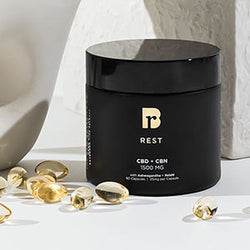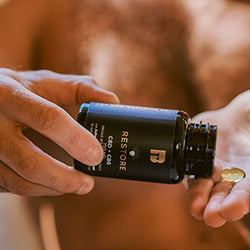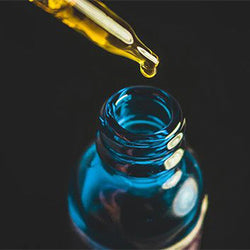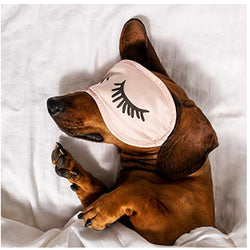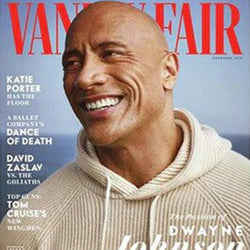How to Tell Good CBD from Gas Station CBD
Take a road-trip across the US, and you’ll see ads for CBD everywhere. Electronic billboards, signs staked into fields alongside the highway, paper print-outs taped to the windows of gas stations. CBD has been going mainstream since at least 2018, when the Agriculture Improvement Act legalized the farming of industrial hemp. By 2023, CBD is expected to swell into a $24 billion market.
But here’s the rub: Not all CBD is created equal. The main problem with gas station CBD products is that you don’t know where it’s sourced from and what it contains. First, there’s a high likelihood that it carries far less CBD than it should. With so many shops and brands and online vendors peddling CBD, how can you distinguish a high-quality CBD product from its knockoff or substandard counterpart—what we’re calling “gas station CBD”?
To be clear and this may shock some of you, low quality CBD is not only found in the obvious red flag areas like gas stations, head shops and record stores. Some of this low-quality CBD is in major retail locations, dispensaries, and sold online often marketed as premium products. So, when we say “gas station CBD” we are referring to any brand that lacks a commitment to quality and efficacy.
Here are the most common warning signs we’ve seen that someone’s selling you low-grade CBD.

If It’s, You Know … Sold in a Gas Station
We have nothing against gas stations, per se. But our experience is that the CBD that’s sold in truck stops or behind glass counters in roadside convenience stores—usually amid racks of Bob Marley and Che Guevara t-shirts—tends to be about as good a purchase as gas station sushi. Gas up, grab a soda for the road, and buy CBD somewhere else.
If It’s Got Delta 8 In It
“Delta 8” may sound like a ’90s action movie—a catastrophe-porn blockbuster where Morgan Freeman plays the president and Keanu Reeves saves a megavolcano from exploding—but it’s really just a loophole low-quality synthesized ingredient that’s intoxicating and highly psychoactive. Unfortunately, it’s also unsafe. Unsurprisingly, that hasn’t stopped CBD companies from selling it as CBD.
Delta-8 sits in a legal gray area. Hemp’s legality stems from the federal farm bill (the Agriculture and Nutrition Improvement Act of 2018), which removed hemp and its byproducts from the list of controlled substances. The reason: Hemp’s low THC levels (less than 0.3%). The bill doesn’t mention Delta-8 anywhere. Many CBD companies who sell Delta-8 have used this loophole to legally market Delta-8 products, usually with no age restrictions. This is the reason many Delta-8 products are in the form of gummies and vape pens with catchy hipster names and youthful packaging. Simple put this is a product that can get you high, hence its popularity with high school kids and people in states where recreational cannabis is either illegal or has strict age restrictions.
You see Delta 8 products a lot in, well, gas stations; they’re often marketed to a younger audience. In our view, CBD brands should promote health and wellness, whereas THC brands should be open about how the intent with their products is to get their consumers high. If you’re buying CBD for your health, stay away from Delta-˜8 and question the integrity of brands that are selling this product.
If It’s Got Mycelium In It
We fully support CBD brands that use functional mushrooms. (We certainly use them.) What we don’t support is companies that use mycelium grain or mycelium biomass in lieu of the whole mushroom. A quick primer on mushrooms: When mushrooms are raised in a lab, they’re often grown in grain, and the harvesters only use the mycelium, which is the root system. While mycelium may provide some health benefits, it’s less effective than ingesting a mushroom’s entire fruit body. Plus, what CBD companies mean when they put “mycelium on grain” in their ingredients is that their customers are ingesting grain-like filler. So you’re paying for premium mushrooms and, instead, mostly getting cheap non-beneficial filler.
If It’s Got Melatonin In It
Melatonin is a hormone that occurs naturally in your body and helps regulate your sleep. Melatonin supplements, however, do not occur naturally—they’re concocted in a lab. So when a CBD company claims to be “all natural,” check the ingredients in the label. If you see “melatonin” anywhere, understand the sleep effect you get from the CBD actually comes not from some magical combination of CBD and melatonin but from the melatonin itself. So if you want the effect of melatonin and you are ok with the groggy feeling you get from taking it buy it without the CBD and save yourself a ton of money. We feel companies using this product are misleading and taking advantage of consumers. Verdict: Avoid melatonin.
If It’s a Gummy or a Hard Candy
“All natural”—you hear that all the time in the CBD space. You also hear “health and wellness” bandied about a lot, and some of that language is valid. (We’ve got our own “Healthy Living Blog.”) But a CBD company that claims it’s a health and wellness brand yet sells gummies should raise red flags for you. The reason gummies taste so good? They’re chock-full of sugar and fake sweeteners. CBD gummies are not health products. They’re candy. You might as well trade them in for some Swedish Fish at a gas station.
If It Comes in Rainbow Flavors
On the topic of sugar-packed products: CBD companies that sell tinctures and edibles that taste like scoops you might get if a marijuana enthusiast opened an ice cream shop—“Purple Punch, Blue Raspberry, Watermelon Madness, Pineapple Express”—are suspect. Nothing wrong with flavors. But that their flavors taste like treats should raise a red flag that they’re not prioritizing your health. We advocate for CBD flavors to be natural only, no artificial flavoring or colors and last time we checked, “cookies 'n cream” and "cotton candy" do not occur naturally in any ecosystem on the planet.
If Its Spokesperson is a Celebrity
When we see an athlete or an actor or a musician—our personal heroes, who might have inspired us to pursue our career paths—touting headphones in a TV commercial, smiling at us from a banner ad, or holding up a CBD product in a YouTube spot, we’re inclined to buy whatever it is they’re selling. With the exception of a few worthy brands, though, most celebrity-endorsed CBD products amount to marketing fluff that displays little regard for the ingredients they contain.
Use your commonsense, too: Would an elite athlete ingest CBD gummies to help him sleep or stay focused on the game tomorrow? Probably not. He’s living on brown rice and lean protein, and the only reason he’s telling you that you need these sugar-laced CBD candies is because he’s getting paid to say that. So research the people who are paying him. Look at their site. Dig into the education, training, and experience of the leaders of the company. If you can’t find an “About Us” page, a founder’s story, a list of values—then choose another CBD brand.
If It’s Being Marketed on Facebook (And Other Social Media)
Plenty of quality CBD brands sell across a bevy of social media platforms. Plenty of others often spew misleading information to sidestep regulations around advertising on social. So how to tell which products are panaceas, and which are substantive and effective? Again, go to their websites. Read the fine print. Get a sense of the brand personality. Gauge whether you think it’s trustworthy. Bear in mind that companies aplenty market their CBD on Facebook as natural sleep aids—most of which are not natural.
If It’s Being Sold on Amazon
No, people. Just … no.
If It Doesn’t Have a Certificate of Analysis (COA)
Ok this is a big one every CBD company must have COA's and make it very easy to find. CBD brands should prove their worth with third-party, lab-certified badges authenticating that their product is made at a high caliber. At Raw Botanics, you can find twelve COAs listed on our site. Download them. Read our product guide. Check out our review in Bloom & Oil. Reach out to us with any questions. We stand by our best-in-class equipment, testing practices, and extraction methods because we’ve designed our products to optimize your health and wellness—so you don’t have to settle for gas station CBD.


